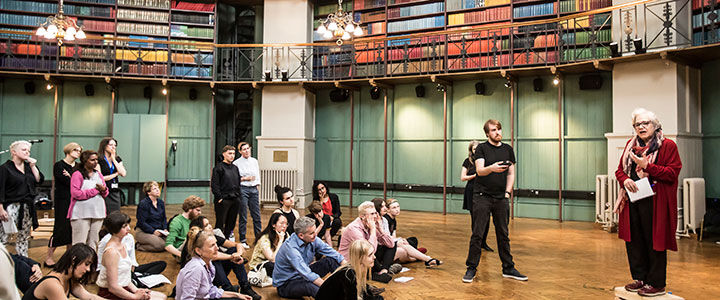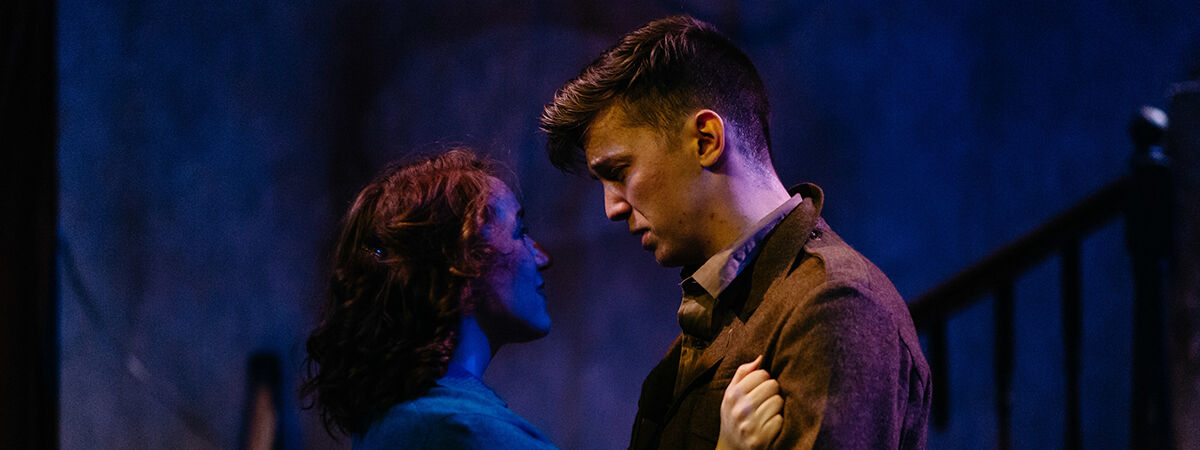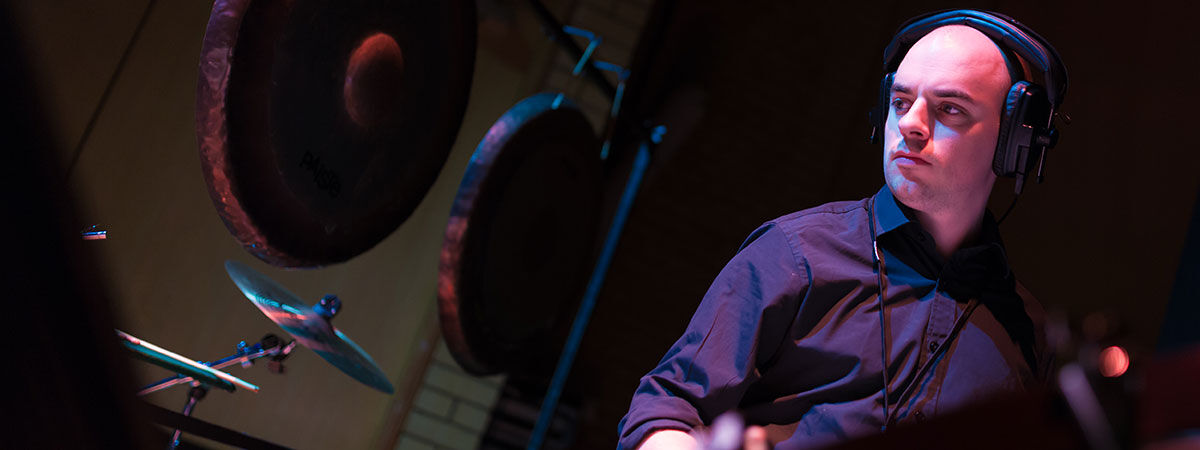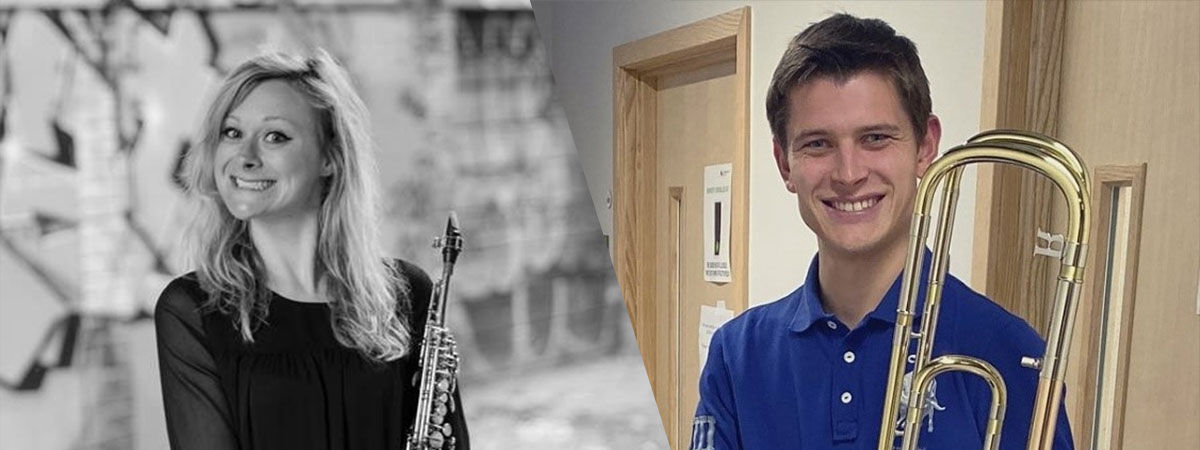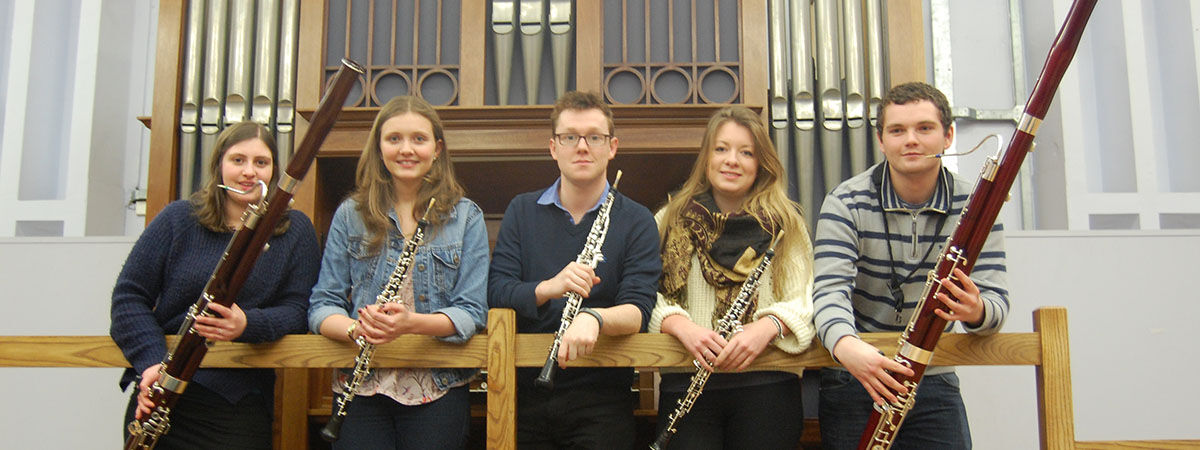Welcome to series 3 of ‘Passing the Baton’ where members of the Conservatoire community talk to each other about life in the time of Covid-19.

In the final episode of this series, MMus Piano student and Events Assistant Ella Lee talks to Senior External Relations Officer and Visiting Tutor in Music Industries and Music Journalism Lyle Bignon.
Ella Lee (EL)
What initially drew you to the music industry?
Lyle Bignon (LB)
I’ve been around music and people making and working in music from a very young age. Some of my earliest memories include: spending time at my father’s luthier workshop; which was in a building shared with techno and acid house record label Network Records, sitting in on Irish traditional music lessons led by musician Pat Molloy; being taken to European orchestral performances at recital halls like Butterworth Hall and the Barber Institute; listening to my mother’s soul, easy listening and rock vinyl records; dancing to roots reggae and lovers rock at family friends’ parties, and much more…
It felt familiar, even reassuring, that after working in many different jobs in my twenties – including retail, bars, public funding, marketing and events – I was able to settle into a role that combined my love of music and writing.
Working in PR, media and stakeholder engagement at Town Hall & Symphony Hall for just short of eight years, taking on freelance PR and journalism contracts for a wide range of music and media projects, and developing my work as a music industry consultant over the past 12 years or so has really reinforced my deep connection with music and the business of music.
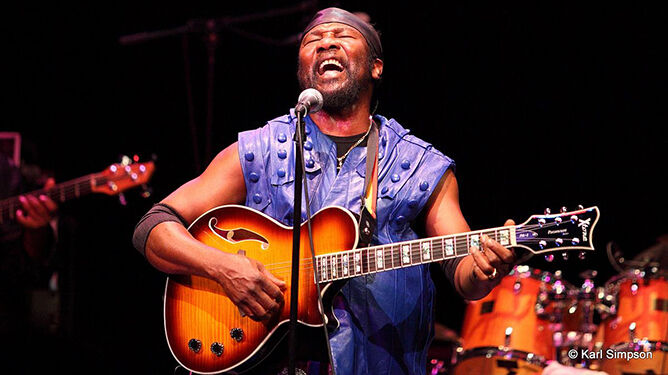
EL
Your clients span a whole range of genres. Are your own personal musical tastes just as eclectic?
LB
Absolutely, growing up with Irish and French heritage around Birmingham, with its unique historical and contemporary musical make-up, exposed me to the most incredible artists, composers, bands, collectives, DJs, ensembles, MCs, orchestras, producers, singer-songwriters and the like, spanning a magical world of sound and music. What other city has produced eclectic musicians like Albert Ketèlbey, Steel Pulse, Pram and Conservatoire alumna Laura Mvula?
Working on international projects has really opened my eyes and ears to the universe of music out there, and I’m very lucky to have worked on countless diverse projects, spanning opera to grime, Qawwali to sludge metal, folktronica to punk rock. Sound system culture lies at the heart of my own music tastes – mento, calypso, rocksteady, dancehall, bashment, and most definitely ska – I’m a bit of a 2 Tone and reggae obsessive too.
Music of, and musicians from, Mali and Congo definitely resonate with me, and innovative synth and vocal heavy electronica by the likes of Blue Hawaii, Chromatics, The Knife/Fever Ray, CocoRosie and Roísín Murphy are generally never far from my playlists.
Closer to home, I am a champion of home-grown Midlands talent as well, such as Nick Drake, Dexys Midnight Runners, The Specials, Duran Duran, Joan Armatrading, Juice Aleem, The Destroyers, The Conservatoire Folk Ensemble, Raffertie and so on – the list really is endless.
Guilty pleasures include Chas and Dave – two of the best English rock ‘n’ roll session musicians ever – Irish rockers Thin Lizzy (distant family connection) and most recordings of Adagio for Strings, apart from Ferry Corsten’s mangled remix of William Orbit’s take on the famous Samuel Barber work.
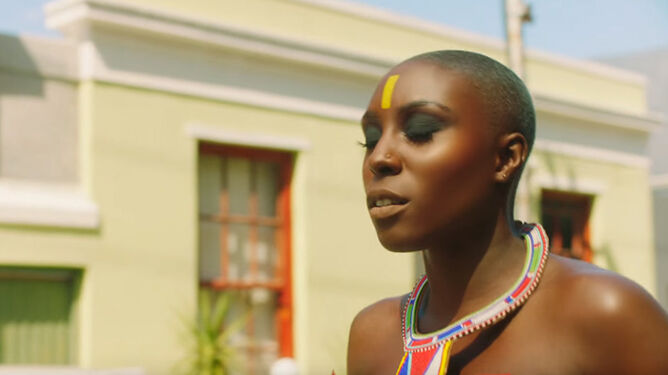
EL
What sort of impact did 2020 have on your working life? How have you adapted?
LB
Like colleagues across the Conservatoire and the University, as well as throughout the wider music and creative industries, I have gone from working in a lively open plan office at the heart of campus to working from either my kitchen or my living room – and occasionally in the garden over the summer. The first few weeks were new and exciting, then as it became clear that the UK’s response to the pandemic would take much longer than anticipated, inevitably working from home became harder and more challenging.
Adjusting to a different way of communicating – MS Teams, Zoom or WebinarJam fatigue, hundreds more notifications to respond to, the daily or weekly chase for information and clarity on government messaging, managing unrelenting media demands for information and access, ensuring continued levels, quality and frequency of communications around regular workstreams. This has all required a huge amount of energy and headspace.
It’s been the biggest learning curve and most unexpected developmental experience in terms of how, why and when we communicate. There’s been no precedent for us to refer to, no benchmark or baseline to compare with, so intuition, peer review and rationale have played a large part in shaping our approach to external relations on behalf of the University.
An unforeseen benefit has been cutting out the commute into the office from South Birmingham. I now spend that time walking our four-year-old Golden Doodle Martha in one of three beautiful parks that are close by. This is a welcome opportunity to either prepare for the day ahead or decompress from the day behind me, while taking in the seasonal changes in all their glorious detail.
Having delivered a few guest lectures to music industries and music journalism students, I have the greatest admiration for colleagues who have been teaching throughout this year, both in person and online. I know it has been a tough experience at a number of points, and friends and colleagues across the University have risen to the challenge with professionalism and tenacity.
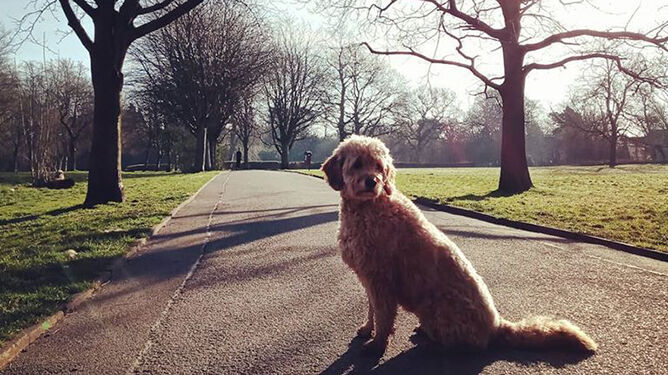
EL
It’s no secret that the live music scene has been hit hard by the pandemic. What are your thoughts on the matter, and how do you envision the return of gigs and concerts to be?
LB
There’s no other way to say it: it has been a devastating year for musicians, music workers and live music fans. How we can go from having gigs, concerts and performances all around us – literally being spoilt for choice – to an abrubt near standstill is just astoundingly sad.
Pre-pandemic, the music industry was notoriously competitive and often ruthlessly commercial and protectionist. It’s becoming something of a cliché, but Covid has been ‘the great leveller’ in the sense that many individuals and businesses working in music have all faced the same restrictions and shutdown, regardless of their status, income and success.
In that context, it’s been massively heartening to see how fans and the industry have rallied together; whether through messages of solidarity and support via financial donations or collectivising to help communicate how valuable the art form is to them and to society.
In my Birmingham Music Coalition capacity, I’ve been busy working with colleagues across the industry to lobby on behalf of the city’s music community, and highlight the extremely perilous situation it is still in. This activity has resulted in contributions to various national conversations and campaigns such as UK Music’s Let The Music Play, the Music Venue Trust’s Save Our Venues, and the NTIA’s Let Us Dance initiatives.
Working with academic colleagues across the University, as well as with individuals from other universities and those working in the region’s music industries, we’ve been able to secure coverage in media outlets like The Guardian, Birmingham Live, Press Association, ITV Central, Daily Express, Metro and China Daily.
News of the vaccine approval and UK-wide rollout is welcome, and, of course, offers the beginnings of a workable roadmap out of this chaos. It is important to note that such attempts to return to ‘normal’ will not be an overnight solution and will come with their own issues and problems, specifically if/when the music industry decides to (or is forced to adopt) proof of vaccination as a condition of live music returning, in any shape or form.
As BCU’s Course Leader in Music Industries Dr Matt Grimes recently pointed out in a conversation with me last week, there is the potential risk of alienating or excluding people from music who don’t want or can’t be vaccinated for whatever reason. But as things stand, given the sheer volume of information sharing in the industry, the significant investment in new Covid-secure measures by individual businesses, and the promise that a vaccination offers in terms of a return to a (new?) normal, all indications are that we may be able to start delivering live performances to live audiences in ‘real life’ by Easter 2021.
EL
What advice would you give to RBC students in the way of self-promotion?
LB
Start with an audit: what do you have in the way of assets and resources? Understanding what one is working with – whether photos, videos, recordings, testimonials, reviews, social media accounts, professional networks, fan bases, supporters and sponsors, associations and memberships and so on – is important and can help you to identify the areas that need further development.
Emerging musicians have a tendency to rely on social media for promotion as most platforms are free and easy to use. However, given the current context it is becoming increasingly harder to be heard among the noise and as paid for content supersedes organic content and reach. Like any area of marketing, it takes time, thought and good execution to reap the best rewards from social media.
Posting about and engaging with other musicians and music should be thought of as equal to talking about your own work – we all quickly tire of the person who just constantly shouts about themselves – and building up mutual respect and a network spanning peers is never a bad thing.
Commissioning or producing good quality digital assets – such as performance and profile photos and showreels, biographies and news releases – is key to (a) gaining trust and respect among industry, and (b) securing media coverage. Professionalising your approach to how you promote yourself and your music is imperative, as is keeping on top of the trends within your field. Curate your newsletter sign-ups, social feeds and news subscriptions, so you are aware of what is going on in music at a regional, national and international level. That might mean signing up to receive Music Week emails, following Gramophone on Twitter, getting Music Ally updates through your smartphone news app, or visiting the London Jazz News website once a week.
Meeting new musicians, music workers and music fans in person, then developing new working relationships, has been all but impossible this year owing to the various restrictions. But as soon as it is possible, get out there – to concerts, gigs, music industry and networking events.
There is a lot to do in the world of promotion, and it takes time to build up an effective set of tools and approaches, but start building mailing lists and engaging with your immediate and wider music community now and you’ll see the benefits sooner than you think.
EL
How was the second lockdown different for you in comparison with the first?
LB
It wasn’t, in all honesty. And with Tier 3 restrictions being an extension of ‘lockdown’ with shops open, it still feels like more of the same now.
To put it into perspective, however, although my family and friends have been affected directly and indirectly by Covid and the pandemic has led to some very worrying moments, I am lucky that I have not lost any friends or close family members to the virus.
I’ll admit that my mental health has taken a kicking at times over the year, but given that I have a job and a roof over my head, along with a very supportive partner and loving dog, and knowing there are many experiencing much worse conditions, temporary inconveniences like lockdown can be tolerated and ridden out. My most-used saying of 2020 is probably ‘rolling with the punches’ – I’m convinced we’ll all get to a better place soon, and it’s that blind faith that is keeping me going.
EL
This year has certainly been an opportunity for reflection – what lessons will you be taking with you into 2021?
LB
That I am, and we are, all stronger and more resilient than previously thought, although as a society we are perhaps more susceptible and vulnerable to seismic events such as a pandemic and Brexit.
The need for a shared spirit and better understanding of one another has never more necessary; now, in December 2020, and most certainly in the coming months. I will be doing all I can to be more community-minded in my personal and professional life going forward.
Finally, I’ll never be taking live music for granted again and I look forward to the day where we can meet up at a venue to listen to music making, live, together.

This was the last episode of series 3 of Passing the Baton. Thank you for joining us, we look forward to presenting you with more enlightening and entertaining content in 2021.
We wish you all a very Merry Christmas and a Happy New Year.
